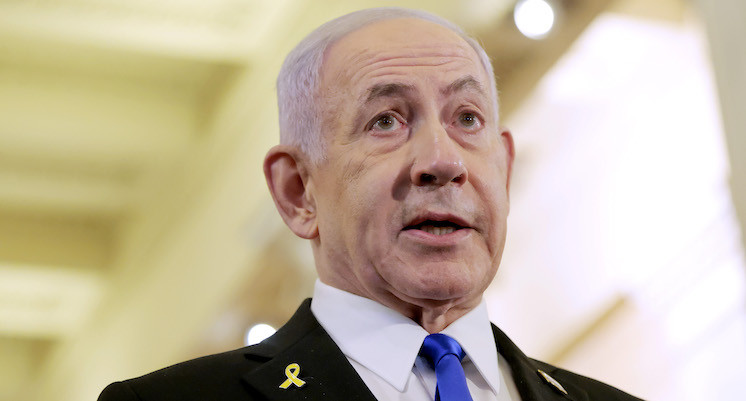Israel’s cabinet is expected to approve Benjamin Netanyahu’s new war plan for Gaza. The outlines of the plan appear to be the following: a pre-escalation period in which Palestinians would be encouraged to leave Gaza City, followed by the IDF taking the city. The Trump administration, meanwhile, will attempt to scale up humanitarian aid distribution sites in Gaza. Ultimately, this is aimed at putting all of Gaza under Israeli military control, to then be handed off to a regional Arab caretaker coalition.
Details at this point are sparse. Reviews and predictions are not. IDF Chief of Staff Eyal Zamir is understood to be skeptical of it. The hostage families tend to be against it. Europe has taken its usual stance concerning Israeli policy: Whatever it is, I’m against it. The recent controversies over hunger and malnutrition in the enclave seem to have left the Diaspora Jewish community in a defensive crouch, preparing to absorb another tsunami of negativity.
But there’s a reason why, to Netanyahu, none of this is much of a deterrent. And his position is worth exploring.
It is likely that the flood of bad (and misleading) press Israel has received over the past couple weeks has convinced Netanyahu that the world already considers Israel to be, effectively, fully occupying the Gaza Strip. Most of the recent UN aid has been taken or diverted before reaching its destination. The UN blames Israel for that, so do world leaders, and so does the press. Yet the UN opposes Israeli security measures designed to ensure the trucks get to their final stop. Netanyahu’s position seems to be: If Israel is going to be held responsible for the outcome, then Israel is going to be responsible for it.
What about the hostages? Here, Netanyahu’s thinking probably falls along the lines of: I agreed to a cease-fire and hostage trade, Hamas didn’t; I can’t simply sit by the phone and wait for Hamas to change its mind. Perhaps the specter of a full IDF assault on what’s left of Hamas can get them back to the table.
What about the timing? To the world, Netanyahu is acting aggressively when Israel’s reputation is already taking a beating. Bibi might agree with that. Israel agreed to a cease-fire, and its press got worse. Hamas released videos of tortured, starved hostages, and it changed nothing. The bad press might simply be a nonfactor in Netanyahu’s decision-making because he believes, not without reason, that Israel’s behavior itself is a nonfactor to the press.
Meanwhile, the “Palestine recognition” gamble has given Israel every incentive to go further into Gaza. If France is going to recognize “the state of Palestine” in six weeks, the thinking goes, then Israel better make sure there is as little of Hamas remaining as possible when that happens. Similarly, if the UK is going to recognize “Palestine” unless there’s a cease-fire, and Hamas is refusing to come to the table under present conditions, someone has to apply more pressure to Hamas.
All of which is to say: Israel has repeatedly lost control over its own war of survival in a futile bid to please others. What Netanyahu wants is for Israel to reassert control wherever it still has some. Once upon a time, a Palestinian state had to negotiate with Israel to gain recognition; now, apparently, it doesn’t. Previously, Hamas had to negotiate with Israel if it wanted a pause in the fighting and an influx of aid; now it doesn’t. All aid used to be inspected and approved ahead of time by Israel before being allowed in; now, everyone and his mother is airdropping care packages over Gaza.
It’s hard not to feel as though Israel’s autonomy has been chipped away at, while it retains full custody of the blame. Whether the new plan to occupy Gaza works—or is even implemented—remains to be seen. But it’s not that difficult to see why some in Israel felt backed into this very corner.


















